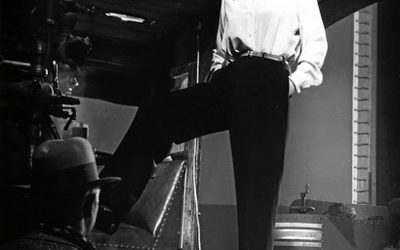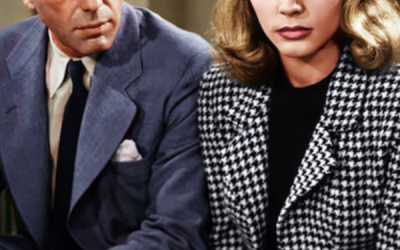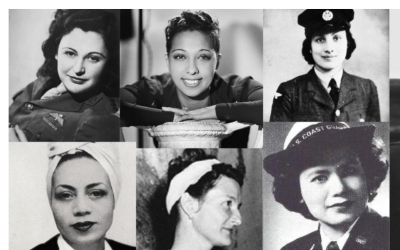(* This post has been transferred from my old website. Please excuse the formatting.)
I guess I’ll have to call this the after-blog.
There was very little that amounted to opinion in my most recent post, Are our Sisters In Crime (still) fighting against a male-dominated literary world?, in which I wrote about the origins of Sisters In Crime, an organisation I have been a member of for 13 years and attended a recent convention for, and quoted relevant statistics regarding gender bias in the literary world. Despite this, it earned some heated responses, most memorably that it was a ‘trendy’ cause, self-interested ‘bandwagoneering’ and ‘privileged whining’, by a fiction reviewer and theatre critic for The Age. (Amusingly, writer John Birmingham tweeted ‘I think the irony gland in my head just exploded.’)
Is it whining to point out the truth, I wonder?
Sadly, the topic of gender bias can result in unnecessarily defensive responses. While most of the responses to the blog were smart, insightful and considered, I found it interesting that some who didn’t take the time to read the increasingly lengthy blog comments made the assumption that the majority had been written by ’emotional’ females – ‘One man vs a plethora of women’, ‘a bunch of school yard bully girls’ with ’emotional over reactions’, as one commenter complained. Another man argued, ‘women in these types of forums inevitably generate this kind of “you go girl; us girls gotta stick together; female solidarity; *hmph* typical men!” kind of talk.’ ‘David’ expressed his stern disappointment in me for writing the blog, and finished with ‘*Insert dramatic asinine rant below’.
It may be interesting to note that 30 of the 68 comments (when I last counted) have been from male readers, though ‘Think About It’ and ‘Geek Anachronism’ have chosen, appropriately enough, to remain genderless, so the actual number is unclear.
This is not a ‘women VS men’ debate.
Most male readers and writers who responded were equally concerned by the statistics. Poet and playwright Nathan Curnow, for instance, amusingly replied to David’s complaint about ‘asinine’ rants with this: ‘As a man (and damn you for making me have to use ‘as a man’) you can kiss MY asinine!’
Dr. Kerryn Goldsworthy, a former editor of Australian Book Review and a former member of the Literature Board of the Australia Council, added:
‘Most of the unconscious bias I have seen in the literary world, and I have seen a great deal, has been to do with the male-centred values of a dominant culture whose values most people wrongly think are universal and gender-neutral. Hence the unconsciousness of the bias, illustrated in several of the comments above, and hence — this goes to Rob’s point — the fact that gender balance on judging panels doesn’t necessarily equate to genuinely gender-neutral decisions, since most women share the values of the dominant culture, which is why it stays dominant and needs to be actively resisted by posts such as this one and events such as the one it reports on.’
While no one person, gender, group or industry is to blame for gender bias, it is important to admit that there still is one, unconscious or otherwise, as the statistics unfortunately illustrate. If you haven’t done so already, check out the Stella Prize website for a plethora of statistics that firmly establish literary gender bias lives on, despite our best wishes. The question isn’t whether a bias exists, or even whether it matters. For centuries words have mattered; they educate us, tell us stories about a range of human experiences, illuminate issues and help form opinions. Women’s voices matter. So the question is What can we do about this bias?
It seems to me the first step is simply being aware of it.
Personally, after overcoming hurdles early in my own writing career, (most memorably, ghost-writing rumours which probably stemmed from entrenched stereotypes about my previous career as a model and resulted in a polygraph test in 2002 that proved I alone write my own work). I feel fulfilled and fortunate in my current space. I have wonderful male and female readers, though admittedly I have more female readers than male, which I understand is common in genre fiction. I can write what I love, comment on topics I find interesting, interview authors I admire, review books I enjoy and support my family. All that makes me a very lucky woman indeed.
In my view there has never been a better time to be a writer, to be a woman, or to be a woman writer. But that doesn’t mean the issues surrounding gender bias in the literary world, or any other arena, should not be discussed, or should be deemed ‘privileged whining’ because of more immediately pressing issues for our gender. Why would pointing to the issue of women’s voices in fiction be ‘…petty compared to, say, areas where the treatment of women has drastic impacts – domestic violence, for example,’as Cameron Woodhead argued in one of his many responses, particularly on a blog about books? Or as Chris argued, ‘Why don’t you …focus your energy helping the women around the world who still need help’. Indeed. Author Dr. Kathryn Fox, a GP, responded that women crime writers are often ‘giving voices to the voiceless’ on serious issues like domestic violence.
Do I really need to mention that I am involved with organisations helping impoverished and at-risk women and children, just so I can have the right to point out another issue affecting people of the same gender? No.
* Since THAT blog, there have been some interesting responses across the Internet. Here are a few:
– Novelist Kate Forster’s response, Miss Misnomer
– Novelist Kate Gordon’s response, Books By Chicks
– Novelist Diane Gaston’s response, Literary Bias, wherein she points out the literary bias against romance novels, and questions whether this may be because ‘romance’ is considered a female domain.
– Writer and teacher Elizabeth Lhuede’s response, Women Writers in a Man’s World: a reply to Tara Moss, wherein she explains that her education set her up to value men’s writing over women’s.
– Publisher and author Lindy Cameron’s response, SheKild’em All
– Novelist Angela Savage’s response, Accounting For Taste.
– And Crikey’s report, Battle of the books: female authors fight back, highlighting responses from authors Kathryn Fox, PM Newton and author and publisher Lindy Cameron.
Wendy Harmer’s excellent new website Hoopla reported on the blog stoush in ‘Tara Moss VS The Art Critic’ to some interesting responses.
Novelist Charlotte Wood noted of critic Woodhead’s antagonistic remarks, ‘It’s just so, so tiresome. The patronising tone, the sneering, the nonsensical distraction from one inequity by pointing to a different one. Do we never move on?’ Novelist Claire Corbett wrote, ‘I can’t help pointing to Craven’s blog in the Drum on the demise of ALR in this context. He dismissed Sophie Cunningham’s RT regarding final issue of ALR featuring NOT ONE woman, either as a reviewer or as a writer, ie every single article and review was by a man about a man as ‘this isn’t the 80s and we’re not in our 20s anymore.’ The breathtaking breeziness of this dismissal just floors me.’
Interestingly, novelist Lee Tulloch, also at The Hoopla, commented, ‘I’ve always maintained The Slap would have been dismissed as ‘chick lit’ (women do domesticity so well, don’t they?) if it had been written by a woman. I don’t believe it would have received the same attention or even the prizes. This is not to criticise the author’s achievement – to the contrary.’
In the words of novelist PM Newton, ‘We Live in Interesting Times’.
It seems to me these are issues worth discussion.




Excellent summary, Tara.
That just pointing out the "facts" and the "stats" could provoke such aggressive and frankly belittling responses is pretty disheartening.
Since the VIDA: Women in Literary Arts stats came out early this year, I feel like I’ve been at a bit of a low simmer. As Sophie Cunningham pointed out though you can argue the toss about any individual book/year/award/issue of the ALR if you look at decades of stats, and you care about a range and diversity of voices writing contemporary stories, then you really do have to stop and wonder about what’s going on.
It strikes me that this debate is similar to the climate change debate – one hot day may not prove the existence of climate change, but decades of increasingly hot weather?
As the song says "There’s something happening here, what it is ain’t exactly clear …" But one things for sure, being told "No, don’t worry about the man behind the curtain, look over there" isn’t going to cut it as an answer anymore.
Thanks for providing a place for so many voices to come and be heard, (and propagate!) – though you must feel a bit like you invited a few folks over for a bit of a soirée and now you’re left cleaning red wine stains out of the carpet after a food fight!
"That just pointing out the "facts" and the "stats" could provoke such aggressive and frankly belittling responses is pretty disheartening."
I agree, it also amazes me how quickly any type of discussion can be reduced to childish arguments over petty semantics whether it be a discussion on gender or anything else.
For example; I recently allowed myself to be pulled into a discussion to answer the question of the differences between wolves and domesticated dogs and whether or not the dog can still be classed as a wolf. Admittedly some of my points were worded just as childishly as those of the tunnel vision fraternity trying to silence me but the basis of my point of view was that there are too many behavioural similarities and differences to count, yet they all (or most) can produce fertile young when interbreeding, defining them all as the same species whether you put sub species labels on them or not, and that there are many sub species of the Grey Wolf (yet the argument seekers focused only on the Grey) such as the Dingo, Arctic Wolf, etc and they are all still classed as wolves regardless of decorative differences, so why should the humble domesticated dog/modified house wolf be any different?
What A giant giant can of worms I opened up. People loved to get fixated on little behavioural clichés which differ and divulge and overlap throughout the animal kingdom in an attempt to prove their point or just have the last word all the while ignoring the core basics that should make up the answer to the question.
Just like your previous blog post, asking a simple question warranting nothing more or less than mature discussion quickly degraded into childish bickering.
When are we all going to strip ourselves of the tunnel vision goggles and allow others to have their say without belittling them or their opinions?
I’m catching up backwards, and will – with great reluctance – peruse the comments from your initial thread in due course.
Meanwhile, the ugliest aspect of what should be perfectly acceptable, civil topics, is the outpouring of scorn from women. It doesn’t matter if it’s literary awards, hair extension or whether Jackie O is the world’s worst mother – a pack of women go in for the kill.
Is it any wonder than men retain control of politics, economics, business and the dominate culture?
Of course, men do jump in too, if they can be bothered. Women and their experience in the world will never be deemed worthy until men also seek equality for women (something a little beyond wanting that second salary to pay for the mortgage).
I was a bit surprised that, in the previous post, you didn’t cite the statistics from the NYT’s (the extreme bias in book reviewing – their own – very concentrated on male writers, and they were unable to defend the findings), and also that, while noting that only one woman had received the "top" Neddie prize, in fact one third of all Neddie prizes have gone to women (or so I read) … for a challenging genre, I actually thought that was pretty impressive, and certainly women writing crime are doing remarkably well compared to other genres or areas of life – at least if measured by Neddie awards.
When I was young, I truly believed that I would see an end to this crap – in my lifetime – now I know I will not. I truly believed that my daughter, my granddaughters, would never have to put up with this utter nonsense. It pains me that I was so wrong.
Perhaps you’d have received more positive and supportive comments if you’d posted about Kim Kardashian’s bottom, since the state of any woman’s body continues to be a matter of legitimate and pressing public concern.
Ooops, sorry, I see you did mention the research from the NYTs (previous post).
Tara, thank you for this very clear and informative post about gender bias in literary circles. Your comment "since most women share the values of the dominant culture, which is why it stays dominant…" is key to much of what ails us. Whether ‘resisting’ is the right word, it seems more that what is required is what you are doing, speaking up clearly, insightfully and dispassionately. As for the negativity, that’s to be expected, sadly. Instead of resisting, it needs to be examined carefully, gems harvested and then ‘let go’ like pulling the plug out of the bath, or flushing the toilet (that’s the metaphor I use).
Providing a vision of what’s possible, while providing a lens on what’s ‘now’, highlighting the unconscousness of what we do day to day that keeps us (society at large)stuck in a groove of our own making, as you(and others) are doing, is what will liberate us.
My field is the care of childbearing women and their families and that spawns some of the most vitriolic interaction you can imagine. I’ve found your post and your perspective comforting. Thank you again for highlighting and discussing this issue, we need voices like yours.
Gender discrimination is stupid thing.
I think the introduction of blind trials to orchestras is an instructive comparison. That is people thought they were judging on the basis of merit, but they weren’t. It’s turns out that when you took away the ability to prejudge, that the women were just as good as the men after all.
In the same way, I don’t think that female authors are any less capable than male ones. If they are not equally represented it is because our judgements are biased. I think it is time to stop defending biased subjective value judgements as being impartial, when they’re not. Marginalizing better writers because they are women impoverishes us all. The facts of fairness and equality support the women’s side of this argument.